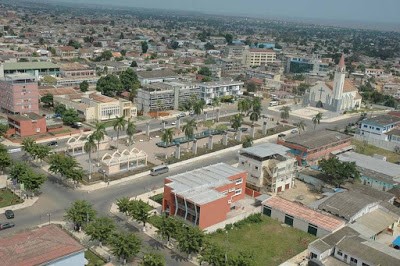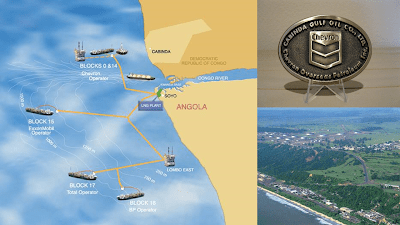Main Foto: MNC
Author: Bartolomeu Capita
Joint-Presidency, Cabindan National Movement
The invasion and unlawful occupation of Cabinda by “Angola” in 1974/75 is actually the result of the long-standing imperialistic rivalry between France and Germany. Germany is called upon to assume her international responsibility under Article 35 of the Charter of the United Nations, in order to put an end to the political repression, economic exploitation, and social degradation the occupation entails.

Those to whom democracy, the rule of law, human rights, and international peace and security really matter, cannot help admitting that the occupation of Cabinda by Angola is the major contributing factor to the political insecurity and instability in southern Africa. The proof is that, so far, two incumbent presidents have been killed; five have been forced to step down; and one prime minister has been assassinated; owing to their attempts to solve the Cabinda issue.
In Germany, and the West at large, few people have ever heard of Cabinda; even among those vaguely aware of Angola’s significance to American interests.
With an area of circa 10,000 square kilometers, some sixty kilometers north of the Congo River, Cabinda (also spelled Kabinda, formerly called Portuguese Congo) is surrounded by the Atlantic Ocean, the Republic of the Congo (Brazzaville), and the Democratic Republic of the Congo (DRC). Its population is estimated at 1,000,000, of which more than half are refugees living abroad. Cabinda, where more than half of Angola’s oil is produced and from which the country earns practically all of its foreign exchange, is also the source of over 70 percent of Angola’s national Budget. Thanks to the grabbed oil of Cabinda, Angola has become one of the United States’ and China’s biggest oil supplier.
Economic exploitation in Cabinda.

| Malongo Terminal and City in Cabinda. Malongo Terminal, where Cabinda crude oil is loaded, is operated by Cabinda Gulf Oil Company (CABGOC). Source: https://www.angolalng.com |
Apart from its oil reserves, Cabinda is also rich in Diamonds, Uranium, Gold, Iron, Phosphates, Manganese, Hardwood, and so on. In crude oil alone, the aggressors get from the subjugated Cabinda over 35 billion euros per year in royalties, essentially paid by Chevron’s wholly owned subsidiary Cabinda Gulf Oil Company Ltd. (CABGOC). Cabinda’s misappropriated oil is also associated, among others, with Sonangol, Agip Angola Lda., Total, and Eni. Actually, the five permanent members of the United Nations Security Council figure among the mightiest nations that take the most advantage of Cabinda’s natural resources. Yet, the UN General Assembly Resolution 1514 (XV) of 14 December 1960 insists, quote: “The subjection of peoples to alien subjugation, domination and exploitation constitutes a denial of fundamental human rights, is contrary to the Charter of the United Nations and is an impediment to the promotion of world peace and co-operation.”
Cabinda as an endangered people.

In Cabinda, even though the indigenous people do not exceed two million, life expectancy at birth has dropped from 75 years in Portuguese colonial era to 48 years nowadays; child and maternal mortality rates now figure among the highest in the world; rubbish dumped here and there have become children’s last resort; and a hospital bed is for at least four patients. The spread of poverty and the crumbling of the infrastructures inherited from the Portuguese colonial era turn out to be the only palpable development. So where does Cabinda’s oil wealth end up? Of course in the pockets of the Angolan oligarchy, which is in charge of handing it over to its Western and Eastern guardians. Though Angola is notorious for its dictatorship, and its criminal use of the State and the economy, it still enjoys considerable confidence from Western governments and financial institutions. Angola is actually allowed to endlessly incur huge and long-term debts (i.e. odious debts), which are endangering the existence of Cabinda’s present and future generations.
Cabinda as a victim of Western Imperialistic rivalries.

Imperialistic wars between Western European nations, i.e. Portugal, Netherlands, Britain, and France, aimed at controlling Cabinda, started in 1600. In 1883 Cabinda lost a huge part of its territory as a result of its occupation by the French. However, the French threatened to occupy the remaining part, i.e. the present-day territory of Cabinda. To protect themselves against French threats, the people of Cabinda signed a protectorate treaty with Portugal in 1885. The treaty received attention and ratification at the Berlin-Congo Conference (1884/85).
Though the German quest for a significant sphere of influence in Africa, with Cabinda in mind, was endorsed by Portugal and Cabinda, it angered the French. The rage was such that the French pledged to prevent Cabinda’s attainment of independence, and thus frustrate the German dream. The fact remains that the occupation of Cabinda by Angola was premeditated, and carried out in two steps; 1) the legal-political attack on Cabinda’s national sovereignty and territorial integrity through the UN GA Resolution 1542 (XV) of December 15, 1960; 2) the occupation was masterminded by France and the USA in 1974/75, and militarily backed by Cuba and the Soviet Union (Russia).
Extent of the German responsibility in Cabinda.

Under Article 35 of the Charter of the United Nations, Germany has the responsibility to bring the Cabinda issue to the attention of the UN Security Council. This responsibility consists in making sure that Cabinda’s political sovereignty is reestablished, in accordance with the UN General Assembly Resolution 1514 (XV) of 14 December 1960. This responsibility also consists in enabling the persecuted people of Cabinda to enjoy the rights conferred on them by the UN General Assembly Resolution 1803 (XVII) of 14 December 1962. In view of these rights, and the provisions of the International Covenant on Civil and Political Rights (1966), Germany and Portugal have the responsibility to make sure that the well-being of the people of Cabinda is promoted to the utmost. Of course, with the Cabinda people’s own natural wealth and resources.
The “Cabindan National Movement (CNM)” is convinced of the need to preserve the political security and stability in the region. Therefore, CNM is an advocate of an agreed transitional period, in which up-to-date infrastructures are built; in which the people of Cabinda are trained; and in which they are given the required skills for self-government, self-defense, and self-respect. At the end of the agreed transitional period, the people of Cabinda regain their citizenship and independence from Angola. For the tasks that the transitional period entails, 5,500,000,000 euros have to be yearly subtracted from Cabinda’s oil revenues under the auspices of Germany and Portugal. Actually, 5 billion euros of the above amount are for the integral development of Cabinda, and 500 million euros for the empowerment of the Cabinda citizens who live abroad as refugees. “In no case may a people be deprived of its own means of subsistence”, declares the International Covenant on Economic, Social and Cultural Rights of December 19, 1966.
We expect Germany to be impartial enough to help restore justice and peace in Cabinda, because justice in Cabinda gives the UN Security Council additional legitimacy and authority.
Because people are human beings. Let us reaffirm our own faith in fundamental human rights, in the dignity and worth of the human person, in the equal rights of men and women and of nations large and small.
Thank you for
taking the time to read this Article, and please urge the German government to
assume its international responsibility in Cabinda.
Additional information:
1.Cabinda: Flucht und Migration. https://cabindastruggle.files.wordpress.com/2018/11/cabinda-flucht-und-migration.pdf
2.Call on Germany to shoulder her responsibility. https://cabindastruggle.files.wordpress.com/2019/01/call-on-germany-to-shoulder-her-responsibility.pdf
3.Consultations with Chancellor Angela Merkel / 2018. https://cabindacitizenship.files.wordpress.com/2018/07/chancellor-angela-merkel-2018.pdf
4.Cabinda: French-German Taboos. https://cabindacitizenship.files.wordpress.com/2018/12/Cabinda-French-German-Taboos.pdf
5.Call on Japanese Prime Minister Shinzo Abe. https://cabindapeoplesvoicehome.files.wordpress.com/2019/06/cabinda-call-on-prime-minister-shinzo-abe.pdf
6.Petition to European Christian Churches. https://cabindacitizenship.files.wordpress.com/2018/05/petition-to-european-christian-churches1.pdf
7.Consultations with the Holy See. https://cabindacitizenship.files.wordpress.com/2019/02/consultations-with-the-holy-see.pdf
8.Paradise Papers: Where Does Angola’s Oil Wealth End Up? https://projekte.sueddeutsche.de/paradisepapers/politik/where-does-angola-s-oil-wealth-end-up-e655516/
9.Oil rich Cabinda still waits for independence from Angola. https://www.voanews.com/africa/oil-rich-cabinda-still-waits-independence-angola
10.Oil-rich Cabinda the poorer for it. https://mg.co.za/article/2012-09-28-00-oil-rich-cabinda-the-poorer-for-it
11.Whose oil is it anyway? https://www.newstatesman.com/society/2007/03/role-oil-angola-playing?amp
12.An oil boom made it the most expensive city in the world. Now it’s in crisis. https://www.washingtonpost.com/world/africa/an-oil-boom-made-it-the-most-expensive-city-in-the-world-now-its-in-crisis/2016/08/02/adf777e8-31c2-11e6-ab9d-1da2b0f24f93_story.html
Fonte: Caringforcabinda.blogspot

